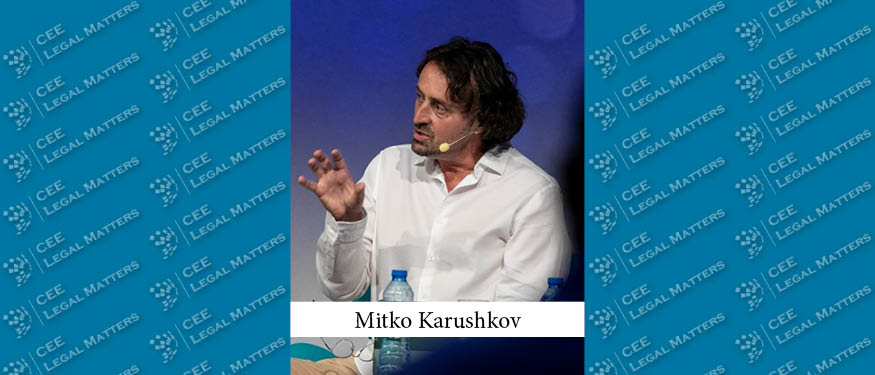Navigating the challenges of Bulgaria’s legal and regulatory environment requires a careful balance, particularly in light of ongoing political instability, according to Karushkov Legal Solutions Founder Mitko Karushkov who takes aim at systemic issues affecting legislative processes, judicial stability, and regulatory reliability, while highlighting the importance of proactive risk management and the potential for growth amidst uncertainty.
"Bulgaria must be understood within the context of its ongoing political instability," Karushkov begins. "This directly affects the legislative process, delaying the adoption of crucial laws while rushing others through parliament, often at the expense of quality and clarity. We’re seeing critical pieces of legislation left in limbo, which undermines confidence and predictability in the legal framework," he goes on to say. Furthermore, Karushkov says that "sometimes some regulators state that the EU legislation is 'vague' and 'too broad,' which triggers the necessity of passing national laws in addition to the EU regulations. This, along with the political instability and the resulting cumbersome legislative process, sometimes leads to a lack of comprehensive guidance businesses need to operate securely." In particular, he indicates that "technology regulation has suffered from this instability, with delays in implementing necessary legislation causing challenges for businesses operating in these sectors.”
Focusing on the specific challenges this poses for businesses and investors, Karushkov stresses that "the instability creates a significant challenge for businesses, both domestic and international. For one, the judicial system is far from stable, and the regulators are not immune to these broader systemic issues. While not all decisions or regulatory bodies are questionable, the system as a whole is shaken, leaving room for uncertainty." This is why a thorough risk analysis is absolutely essential for businesses operating in Bulgaria. "It’s not enough to evaluate the financial or operational aspects of a deal – companies must also consider potential legal disputes and prepare for worst-case scenarios." Additionally, he stresses that "many regulators face challenges due to expired terms and delayed appointments, which raise questions about their capacity and competence. This gap in regulatory oversight has led some regulators to avoid addressing factually complex cases, compounding uncertainty for businesses.”
Crucially, when it comes to mitigating risks, Karushkov indicates that "businesses should factor in the potential for disputes and the likelihood of challenges within Bulgaria's judicial system." To that end, he indicates that arbitration clauses are becoming increasingly important, as they provide an alternative to the local courts. "Companies should also focus on robust due diligence, ensuring that every aspect of their operations – from regulatory compliance to contractual obligations – is carefully scrutinized. Proactive legal and operational strategies are crucial for navigating this environment." Specifically, he adds that "some non-EU clients are increasingly introducing self-insurance clauses, offering more flexibility and security for investments. This approach has gained traction among local businesses as well, reflecting a shift in risk management practices.”
Still, with all this being said, there is a silver lining. "While the challenges are significant, there are still opportunities for growth," Karushkov says. "Bulgaria remains a key market in the region, with a strategic location and an economy that continues to attract attention despite the hurdles. Businesses that approach the market with caution, leveraging strong legal advice and risk management practices, can still find success," he opines. Moreover, political and judicial reforms are topics of active discussion in the country, and if implemented effectively, Karushkov believes they could restore confidence and stability in the years to come. "In a landscape defined by uncertainty, careful planning, and strategic risk management are not just advisable – they’re essential. However, I remain optimistic that things will start looking up soon," Karushkov concludes.






















